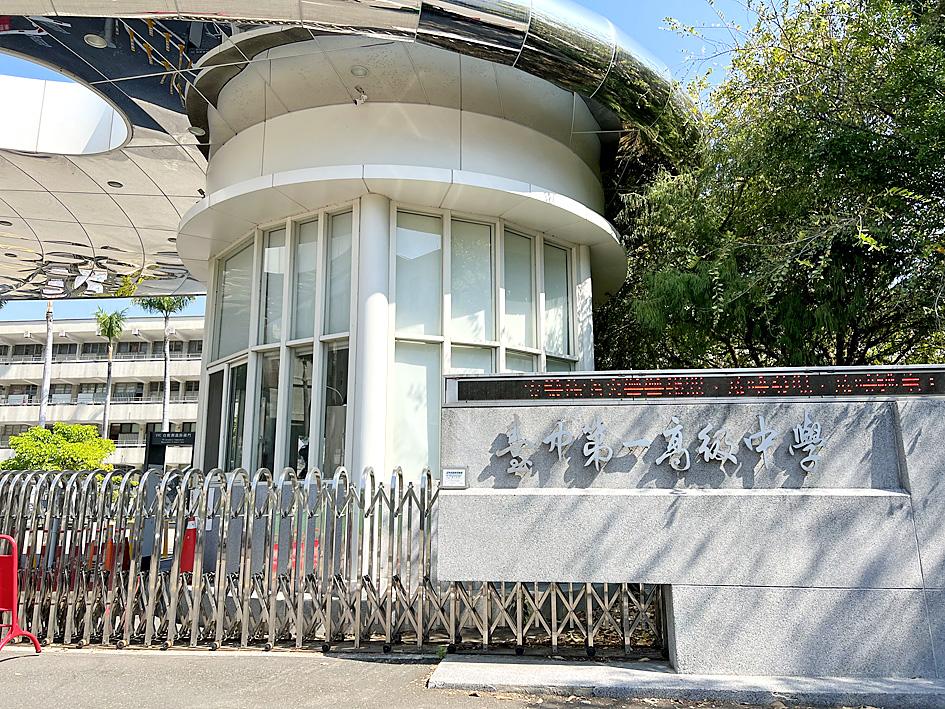Music played for the deceased using the traditional nanguan (南管) and beiguan (北管) music forms celebrate the philosophy of life, morals and the values of Taiwanese, and therefore should not be discriminated against, an academic said on Saturday.
A video clip uploaded to the Internet on Friday showed a Taichung Municipal Taichung First Senior High School music teacher surnamed Lu (呂) yelling at a group of students for giving a presentation on nanguan and beiguan music, and a “soul guiding” music piece for their report on traditional Chinese instruments.
Soul guiding is a Taiwanese folk custom comprised of rituals and music, said Lin Mao-hsien (林茂賢), chairman of National Taichung University of Education’s Department of Taiwanese Languages and Literature.

Photo: CNA
Although it serves to guide the soul of the deceased along the road to Sukhavati — a pure land in Mahayana Buddhism — the tradition consoles the living and eases their worries, he said.
Soul guiding music embodies the Taiwanese folk beliefs of the immortality of souls, judgment after death and karma, Lin added.
Traditional nanguan and beiguan music has also been included in the 12-year national education curriculum guidelines and designated as part of Taiwan’s intangible cultural heritage, Lin said.
While the two music forms are frequently linked, beiguan is sung in Mandarin Chinese while nanguan is sung in Hoklo (commonly known as Taiwanese) in an accent associated with China’s southern Fujian Province, said Wu Su-hsia (吳素霞), a life-long promoter of nanguan.
Beiguan is performed using suonas, gongs and drums, as well as pipas and huqins, while nanguan only involves instruments that were played indoors, such as pipas, sanxians and erxian, she added.
Nanguan has been preserved independently from the music industry, as it is not marketed for profit, but is a kind of casual music for entertainment, Wu said.
“Although nanguan is not a type of performance art, it is a living antique of Taiwanese cultural arts,” she said.
Meanwhile, the school on Saturday said that it would provide counseling to the students involved in the incident with Lu.
However, the students who uploaded the video accused the school of forcing them to take down the video.
They said they hoped the school would investigate the incident and replace Lu.
Lu had not made any public response as of press time last night, while the school said that the incident was still being investigated.
Additional reporting by Ho Tsung-han

US climber Alex Honnold is to attempt to scale Taipei 101 without a rope and harness in a live Netflix special on Jan. 24, the streaming platform announced on Wednesday. Accounting for the time difference, the two-hour broadcast of Honnold’s climb, called Skyscraper Live, is to air on Jan. 23 in the US, Netflix said in a statement. Honnold, 40, was the first person ever to free solo climb the 900m El Capitan rock formation in Yosemite National Park — a feat that was recorded and later made into the 2018 documentary film Free Solo. Netflix previewed Skyscraper Live in October, after videos

Starting on Jan. 1, YouBike riders must have insurance to use the service, and a six-month trial of NT$5 coupons under certain conditions would be implemented to balance bike shortages, a joint statement from transportation departments across Taipei, New Taipei City and Taoyuan announced yesterday. The rental bike system operator said that coupons would be offered to riders to rent bikes from full stations, for riders who take out an electric-assisted bike from a full station, and for riders who return a bike to an empty station. All riders with YouBike accounts are automatically eligible for the program, and each membership account

NUMBERS IMBALANCE: More than 4 million Taiwanese have visited China this year, while only about half a million Chinese have visited here Beijing has yet to respond to Taiwan’s requests for negotiation over matters related to the recovery of cross-strait tourism, the Tourism Administration said yesterday. Taiwan’s tourism authority issued the statement after Chinese-language daily the China Times reported yesterday that the government’s policy of banning group tours to China does not stop Taiwanese from visiting the country. As of October, more than 4.2 million had traveled to China this year, exceeding last year. Beijing estimated the number of Taiwanese tourists in China could reach 4.5 million this year. By contrast, only 500,000 Chinese tourists are expected in Taiwan, the report said. The report

Temperatures are forecast to drop steadily as a continental cold air mass moves across Taiwan, with some areas also likely to see heavy rainfall, the Central Weather Administration (CWA) said. From today through early tomorrow, a cold air mass would keep temperatures low across central and northern Taiwan, and the eastern half of Taiwan proper, with isolated brief showers forecast along Keelung’s north coast, Taipei and New Taipei City’s mountainous areas and eastern Taiwan, it said. Lows of 11°C to 15°C are forecast in central and northern Taiwan, Yilan County, and the outlying Kinmen and Lienchiang (Matsu) counties, and 14°C to 17°C